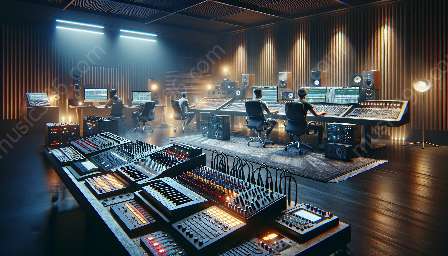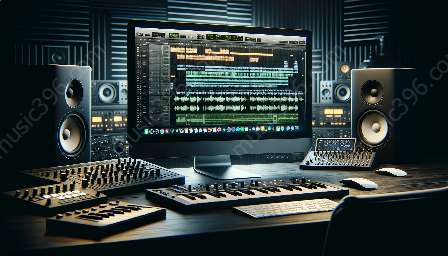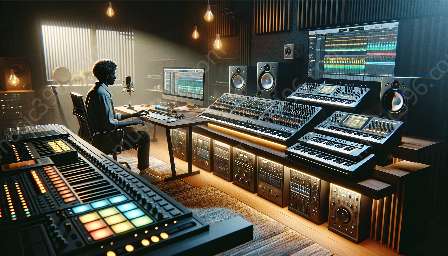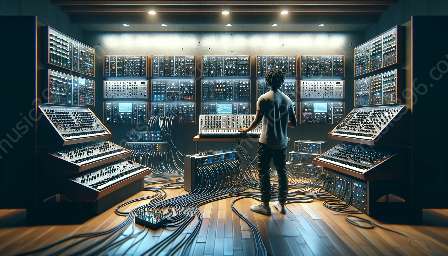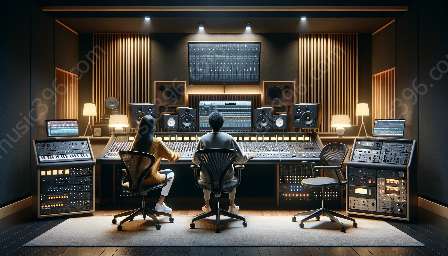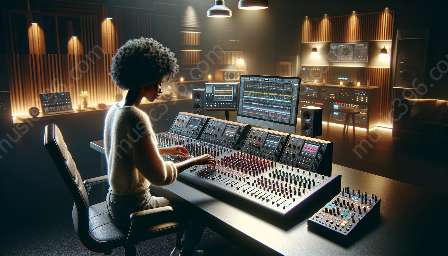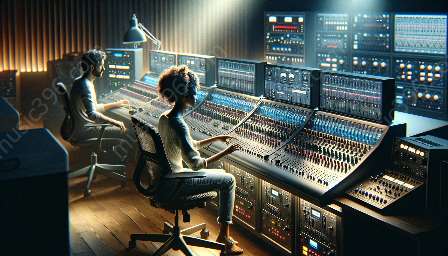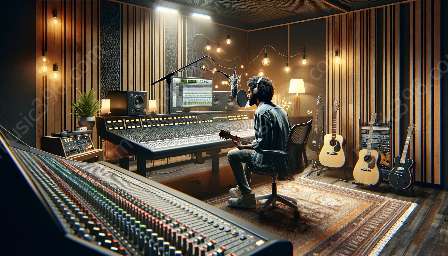Education and training for virtual instrument technology encompass the specialized knowledge and skills required for working with virtual instruments in the field of music technology. This topic cluster explores the educational pathways and training programs available for individuals interested in pursuing a career in virtual instrument technology. Whether you are a musician, audio engineer, or music producer, understanding virtual instruments and their applications in the digital environment is essential for staying competitive in the industry.
Virtual Instrument Technology
Virtual instrument technology refers to the use of software-based instruments and tools to create, manipulate, and produce music or sound in a digital environment. These virtual instruments can range from synthesizers and samplers to virtual drum machines, effect plugins, and more. They have become integral components of modern music production and performance, offering a wide range of sounds and functionalities that were previously only achievable through physical hardware.
Professionals working in music production, sound design, and audio engineering often rely on virtual instruments to expand their sonic palette and streamline their workflow. Therefore, having a solid grasp of virtual instrument technology is essential for those seeking a career in music technology and related fields.
Education in Virtual Instrument Technology
As the demand for virtual instrument expertise continues to grow, educational institutions have developed specialized programs and courses to train individuals in this field. These programs typically cover a wide range of topics, including digital audio fundamentals, software applications for music production, synthesis and sound design, MIDI programming, and more. Students enrolled in these programs often have access to state-of-the-art recording studios, computer labs, and industry-standard software to gain hands-on experience with virtual instruments and related technologies.
Depending on the institution and the specific program, students may pursue degrees or certificates in areas such as Music Technology, Audio Engineering, Sound Design, or Electronic Music Production, all of which include comprehensive training in virtual instrument technology. Additionally, some programs offer specialized courses focusing specifically on virtual instruments and their integration into music production and performance.
Curriculum Overview
The curriculum for virtual instrument technology programs typically covers the following key areas:
- - Digital audio principles and techniques
- - Music theory and composition
- - MIDI programming and control
- - Synthesis and sound design
- - Software instruments and effects
- - Digital audio workstations (DAWs) and production software
By engaging with these topics, students can develop a deep understanding of virtual instrument technology and its practical applications within the context of music production and performance. Moreover, they often have the opportunity to work on real-world projects and collaborate with peers, further honing their skills in utilizing virtual instruments to create professional-quality music.
Training for Virtual Instrument Technology
In addition to formal education, aspiring professionals in the field of virtual instrument technology can benefit from specialized training and workshops offered by industry experts and organizations. These training opportunities may cover advanced techniques for using specific virtual instruments, optimizing workflow within digital audio workstations, integrating virtual instruments with hardware controllers, and more.
Furthermore, many music technology companies and software developers provide online tutorials, documentation, and user communities to support individuals in mastering virtual instrument technology. These resources offer insights into best practices, troubleshooting tips, and creative techniques for leveraging virtual instruments to achieve desired musical outcomes.
Professional Development
Continuous professional development is crucial for staying updated with the rapidly evolving landscape of virtual instruments and music technology. Whether through attending industry conferences, participating in online webinars, or engaging with user forums, professionals can stay abreast of the latest trends and advancements in virtual instrument technology.
Ultimately, education and training in virtual instrument technology equip individuals with the knowledge and skills needed to leverage the power of virtual instruments in the modern music industry. By combining theoretical understanding with practical application, students and professionals can unlock new creative possibilities and excel in their respective careers. Whether working in music production, sound engineering, live performance, or multimedia production, proficiency in virtual instrument technology is a valuable asset for anyone passionate about pushing the boundaries of music and audio creativity.
Conclusion
Education and training for virtual instrument technology play a vital role in preparing individuals for successful careers in music technology and related fields. By pursuing formal education, engaging in specialized training, and continuously updating their skills, aspiring professionals can position themselves as knowledgeable and skilled practitioners in the realm of virtual instrument technology. As the technology and tools continue to evolve, staying informed and proficient in virtual instruments will remain essential for those seeking to make an impact in the world of music and sound.


